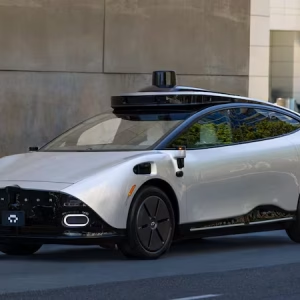The Gulf Cooperation Council (GCC) region is on the cusp of a technological transformation that promises to reshape its economy and transport systems. By 2035, the GCC is projected to reap an impressive $18.7 billion from the widespread adoption of autonomous vehicles. This revolution is not just about technology but about creating new economic opportunities, enhancing mobility, and positioning the region as a global leader in innovation.
The Rise of Autonomous Vehicles in the GCC
Autonomous vehicles (AVs), or self-driving cars, are no longer a futuristic concept. They are increasingly becoming a reality, with advancements in artificial intelligence, machine learning, and sensor technologies driving their rapid development. In the GCC, governments and private companies are investing heavily in infrastructure, regulations, and pilot programs to support AV adoption.
The region’s urban areas, characterized by modern highways and smart city initiatives, provide an ideal environment for AV testing and deployment. The GCC’s commitment to innovation and technological advancement has set the stage for a substantial economic windfall from this sector.

Economic Opportunities from Autonomous Vehicles
The $18.7 billion forecast is driven by multiple economic factors. Autonomous vehicles are expected to revolutionize the transportation sector by reducing accidents, lowering operational costs, and increasing efficiency. Industries such as logistics, delivery services, and public transport will benefit significantly from self-driving technology.
Moreover, the GCC’s position as a hub for trade and tourism amplifies the potential impact. AVs can improve connectivity between cities, enhance the travel experience, and create a new ecosystem of services, including autonomous ride-hailing, vehicle maintenance, and software solutions. This ecosystem will generate jobs, stimulate investments, and diversify economies beyond oil dependence.

Government Initiatives and Policy Support
GCC governments are actively shaping policies to enable the smooth integration of autonomous vehicles. Regulatory frameworks, safety standards, and incentives for innovation are being introduced to attract both local and international investments.
Countries in the region are also exploring public-private partnerships to accelerate AV deployment. Pilot projects, smart city collaborations, and dedicated test zones are fostering innovation while ensuring that safety and operational standards are met. This proactive approach positions the GCC as a regional leader in autonomous mobility.
Technological Advancements Driving Growth
The growth of autonomous vehicles in the GCC is underpinned by rapid technological advancements. AI-powered navigation, advanced sensors, and vehicle-to-everything (V2X) communication are enabling self-driving cars to operate safely and efficiently.
Smart infrastructure, including connected traffic systems and intelligent road networks, complements these technological improvements. By integrating AVs with smart city initiatives, the GCC can optimize traffic flow, reduce congestion, and enhance urban mobility. This synergy of technology and infrastructure is a key factor driving the projected $18.7 billion windfall.
Implications for the Workforce
While autonomous vehicles promise economic gains, they also bring significant implications for the workforce. Certain roles, such as drivers in logistics and transport, may see shifts in demand. However, new opportunities will emerge in areas like software development, vehicle maintenance, cybersecurity, and AI training.
GCC governments are focusing on workforce upskilling and reskilling programs to ensure that citizens can benefit from the autonomous vehicle revolution. By fostering a skilled workforce, the region can support sustainable growth and maintain its competitive edge in the global market.

Environmental and Social Benefits
Beyond economic gains, autonomous vehicles offer environmental and social advantages. AVs can reduce emissions by optimizing driving patterns and promoting shared mobility. This aligns with the GCC’s sustainability goals and commitment to cleaner, smarter cities.
Autonomous vehicles also enhance accessibility for all, including the elderly and differently-abled individuals, by providing reliable and convenient transport options. These social benefits strengthen community resilience and improve quality of life across the region.
Challenges and Future Outlook
Despite the promising outlook, challenges remain. Cybersecurity risks, regulatory complexities, and public acceptance are key hurdles that need addressing. Coordinated efforts between governments, private companies, and technology providers are essential to overcome these obstacles.
Looking ahead, the GCC’s proactive approach and strategic investments position it to fully capitalize on the autonomous vehicle revolution. By 2035, the projected $18.7 billion windfall represents not only financial gains but also an opportunity to transform mobility, technology, and society in the region.
Conclusion
The autonomous vehicle revolution offers the GCC a chance to redefine its economic and technological landscape. With an estimated $18.7 billion in potential revenue by 2035, the region stands to benefit from innovation, job creation, and improved mobility. As governments, businesses, and citizens embrace this change, the GCC is poised to become a global leader in autonomous mobility, driving growth and shaping a smarter, more connected future.
Do follow UAE Stories on Instagram
Read Next – How UAE Engineered a $34B Wellness Boom to Become a Regional Hub















